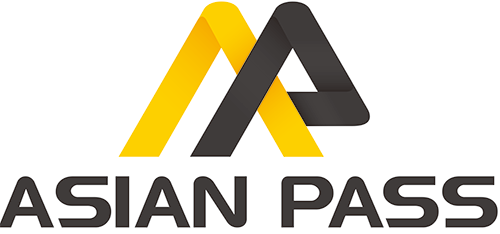Is an enterprise under accounting inspection responsible for providing accounting documents to the accounting inspection team? Which agency has the authority to decide on accounting inspection? How should an enterprise preserve and store accounting documents? Through today’s article, let’s learn about this issue with Pham Consult!

Is an enterprise under accounting inspection responsible for providing accounting documents to the accounting inspection team?
Pursuant to the provisions of Article 38 of the 2015 Accounting Law as follows:
Rights and responsibilities of accounting units subject to accounting inspection
1. Accounting units subject to accounting inspection have the following responsibilities:
a) Provide the accounting inspection team with accounting documents related to the inspection content and explain the contents as requested by the inspection team;
b) Implement the conclusions of the accounting inspection team.
2. Accounting units subject to accounting inspection have the following rights:
a) Refuse the inspection if they find that the inspection is not within the authority specified in Clauses 2 and 3, Article 34 or the inspection content is not in accordance with the provisions of Article 35 of this Law;
b) Make a complaint to the competent state agency in case of disagreement with the conclusions of the accounting inspection team.
Accordingly, the enterprise subject to accounting inspection is responsible for providing the accounting inspection team with accounting documents related to the inspection content and explaining the contents as requested by the inspection team.
In addition, the enterprise subject to accounting inspection has the following rights:
– Refuse the inspection if it finds that the inspection is not within the authority specified in Clause 2 and Clause 3, Article 34 of the 2015 Accounting Law or the inspection content is not in accordance with the provisions of Article 35 of the 2015 Accounting Law;
– Make a complaint to the competent state agency in case of disagreement with the conclusion of the accounting inspection team.
Note: The content of accounting inspection is specified in Article 35 of the 2015 Accounting Law as follows:
(1) The content of accounting inspection includes:
– Inspecting the implementation of accounting work content;
– Inspecting the organization of the accounting apparatus and accountants;
– Inspecting the organization, management and operation of accounting services;
– Inspecting the compliance with other provisions of the law on accounting.
(2) The content of the accounting inspection must be determined in the inspection decision, except for the case specified in Point b, Clause 3, Article 34 of the Accounting Law 2015.
Which agency has the authority to decide on accounting inspection?
Based on the provisions of Article 34 of the Accounting Law 2015 as follows:
Accounting inspection
1. Accounting units must be subject to accounting inspection by competent authorities. Accounting inspections shall only be carried out upon a decision of a competent authority in accordance with the provisions of law, except for the agencies specified in Point b, Clause 3 of this Article.
2. Agencies with the authority to decide on accounting inspection include:
a) Ministry of Finance;
b) Ministries, ministerial-level agencies, government agencies and other central agencies decide to inspect the accounting of accounting units in the assigned fields;
c) Provincial People’s Committees decide to inspect the accounting of accounting units in the localities under their management;
d) Superior units decide to inspect the accounting of affiliated units.
3. Agencies with authority to inspect accounting include:
a) Agencies specified in Clause 2 of this Article;
b) State inspection agencies, specialized financial inspectorates, State Audit, tax agencies when performing the tasks of inspecting, examining and auditing accounting units.
Thus, according to regulations, the agencies with authority to decide to inspect accounting include:
– Ministry of Finance;
– Ministries, ministerial-level agencies, government agencies and other central agencies decide to inspect the accounting of accounting units in the assigned fields;
– The provincial People’s Committee decides to inspect the accounting of accounting units in the locality under its management;
– The superior unit decides to inspect the accounting of affiliated units.
Note: The competent agencies for accounting inspection include:
– The Ministry of Finance;
– Ministries, ministerial-level agencies, government agencies and other central agencies decide to inspect the accounting of accounting units in the assigned fields;
– The provincial People’s Committee decides to inspect the accounting of accounting units in the locality under its management;
– The superior unit decides to inspect the accounting of affiliated units.
– State inspection agencies, specialized financial inspectorates, State Audit, tax agencies when performing the tasks of inspecting, checking and auditing accounting units.
How must enterprises preserve and store accounting documents?
Pursuant to Article 41 of the 2015 Accounting Law, enterprises must preserve and store accounting documents as follows:
(1) Preserve accounting documents completely and safely during use and storage.
(2) In case accounting documents are temporarily detained or confiscated, there must be a record attached with a copy of the accounting document; if accounting documents are lost or destroyed, there must be a record attached with a copy of the document or a confirmation.
(3) Enterprises must archive accounting documents within 12 months from the end of the annual accounting period or the end of accounting work.
(4) The legal representative of the enterprise is responsible for organizing the preservation and archiving of accounting documents.
(5) Accounting documents must be archived for the following periods:
– At least 05 years for accounting documents used for management and operation of the accounting unit, including accounting documents not directly used to record accounting books and prepare financial statements;
– At least 10 years for accounting documents directly used to record accounting books and prepare financial statements, accounting books and annual financial statements, unless otherwise provided by law;
– Permanent archive for accounting documents of historical nature, of important economic, security and defense significance.
Comments




 VI
VI